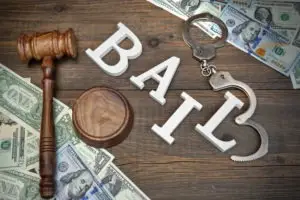
Basic Information About Bail in California
Bail is a monetary payment made to the court after an individual gets accused of a crime. Paying bail allows individuals to stay out of jail or prison until their criminal trial begins. Note that some areas of California may no longer enforce a cash bail policy.
During a bail hearing, the court decides the amount of money an individual must pay to be released. A criminal defense lawyer in Los Angeles can help with these hearings. For instance, your lawyer can help ensure your bail is set at a lower amount.
Once out on bail, individuals are expected to adhere to various regulations. For example, individuals are expected to return for their court dates. They can face failure to appear charges if they do not return to court after getting released on bail.
Additionally, individuals must adhere to the law while out on bail. Failure to obey the law while on bail is a criminal offense in California.
Information About Committing a Felony While on Bail
There are legal penalties for committing a felony while on bail. Individuals who are convicted of both a “primary” offense and a “secondary” offense while on bail face increased time in prison. Let’s review the definitions of primary and secondary offenses.
Primary Offenses in California
A primary offense is the initial charge an individual gets arrested for in California. For example, say a woman gets arrested for assault then released on bail. While on bail, she commits battery, causing severe bodily injury. The act of assault would be her “primary” offense.
Secondary Offenses in California
An individual may commit a secondary offense while out on bail. In the example above, the crime of battery is the “secondary” offense. The word “secondary” does not denote that this crime is less severe than the primary offense. Instead, it is used to show the order in which the crimes were committed.
Penalties for Committing a Felony While on Bail
PC 12022.1 allows the court system in California to punish individuals who commit a felony while on bail. Generally, the court can add two years to an individual’s prison sentence. However, the court only adds this extra time if the individual gets convicted of both a primary and a secondary offense.
The additional two years of prison time are not added if an individual is only accused of a secondary offense. These two years also do not apply if an individual is found not guilty of their primary crime. Team members at the Simmrin Law Group can help you review this situation in greater detail and how to fight these charges.
Handling Accusations of Committing a Felony While on Bail
A criminal defense lawyer in Los Angeles can help if you were accused of a felony while out on bail. We may be able to help you avoid additional time in prison. Let us help you show that you should not receive an enhanced prison sentence.
You didn’t Actually Commit a Felony
Your lawyer can help you show that you were falsely accused of a crime and that you were not actually guilty of committing a crime while on bail. You may be able to avoid a conviction and its associated penalties under PC 12022.1.
You Were Not Guilty of the Primary Offense
You may be able to avoid additional prison time if you are found not guilty of your primary charge. We are ready to help no matter what criminal charges you may be facing. Reach out if you face an accusation of a drug, sex, theft, or white-collar crime. We also take care of violent crime charges and more. Call us today to learn more about how we can help.
What Happens If the Primary Offense Gets Appealed?
If you appeal a conviction for the primary offense, the sentencing enhancement will be suspended until the case can be retried. Should you win your appeal, the sentencing enhancement under PC 12022.1 will be permanently revoked. This revocation will hold even if you are found guilty of the secondary offense.
However, if you are reconvicted upon appeal, the sentencing enhancement will be reimposed, and you will have to serve an additional two years of time in prison.
The Sentencing Enhancement Will Be Served Consecutively
If you receive a sentencing enhancement under Penal Code 12022.1, the additional two years added to your sentence will be served consecutively. Your incarceration time for the primary offense, secondary offense, and sentence enhancement will all be served one after another.
In situations where the primary offense results in time in state prison, the whole sentence will be carried out there. Even if the secondary offense receives a sentence for time to be served in county jail, the entire incarceration term will be served in state prison.
Contact Us About Committing a Felony While on Bail
Were you accused of committing a felony while on bail in California? Allow the team at the Simmrin Law Group to provide you with assistance right now. We’ll start reviewing your case immediately to help you understand Penal Code 12022.1 charges and how to fight them. Just contact us for a free consultation. A criminal defense lawyer in Los Angeles is ready to help you.
Contact us by phone or online. A member of our legal team will review your case and answer all of your questions. We will advise you of your options for how to proceed and explain the pros and cons of the various choices.
Should you choose to retain our services, we will get to work building your defense right away. We have the experience needed to fight these charges and minimize your sentence.
